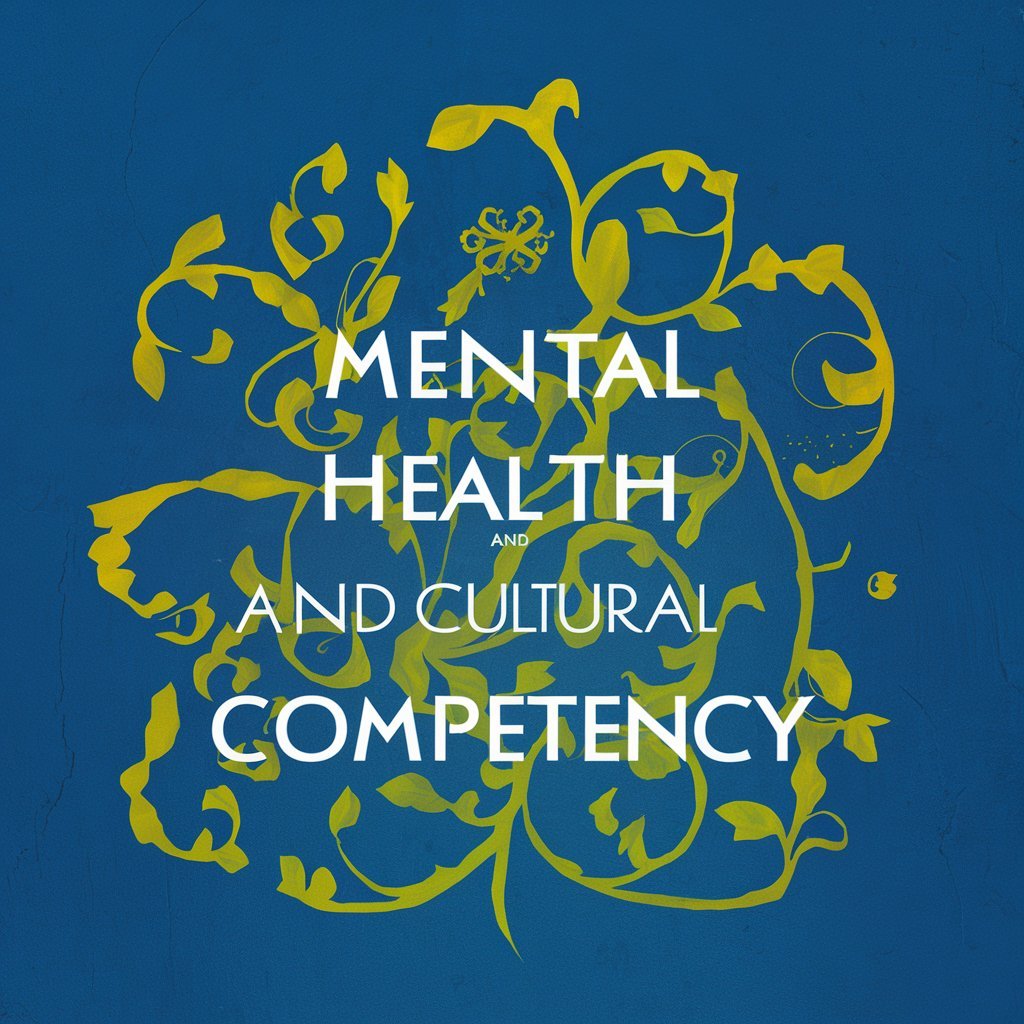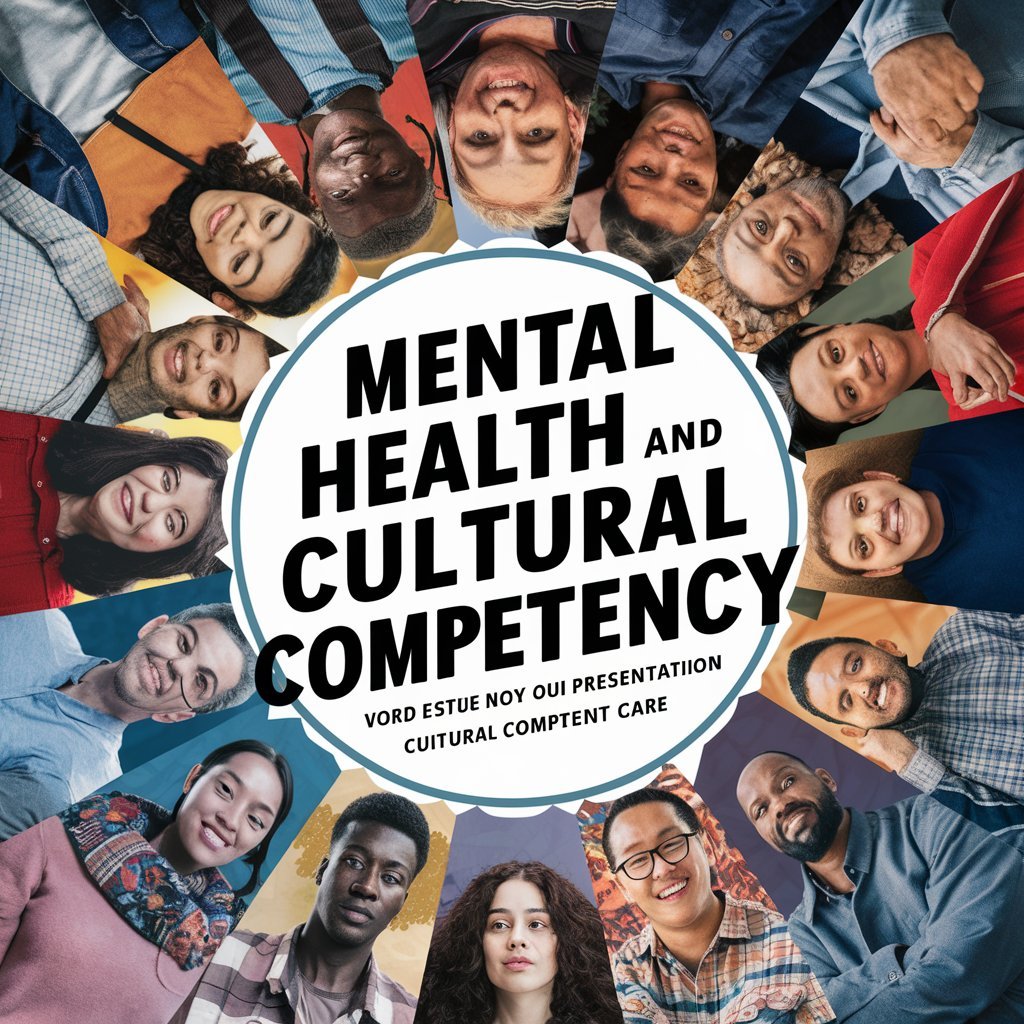Mental Health and Cultural Competency: Providing Inclusive Care
Hey there, my young and curious friends! It’s your mental health buddy, Nita Sharda, here to talk about a topic that’s super important for making sure that everyone gets the care and support they need – mental health and cultural competency, and how we can provide inclusive care that respects and values the unique experiences and identities of all people.
Now, I know that the words “cultural competency” might sound a little fancy or complicated at first, but don’t worry – we’re going to break it down and make it easy to understand.
Cultural competency is all about being aware of and respectful towards the different cultural backgrounds, beliefs, and experiences that people bring with them, and using that awareness to provide care and support that is sensitive and responsive to those differences.
And when it comes to mental health, cultural competency is especially important, because our cultural backgrounds and identities can have a big impact on how we understand and experience mental health challenges, and what kind of support and treatment we feel comfortable with.
So today, we’re going to explore the world of mental health and cultural competency, and how we can all work together to create a more inclusive and equitable mental health care system that works for everyone, no matter their background or identity.
Understanding Cultural Differences in Mental Health
First, let’s talk about some of the ways that cultural differences can impact mental health and mental health care.
Cultural Beliefs and Attitudes about Mental Health
One of the biggest ways that culture can impact mental health is through the beliefs and attitudes that different cultures have about mental health and mental illness.
In some cultures, mental health challenges may be seen as a sign of weakness or personal failure, while in others, they may be seen as a natural part of the human experience that requires support and understanding.
Some cultures may also have different ways of understanding and describing mental health symptoms, or may prioritize different types of treatment and support, like traditional healing practices or community-based interventions.

It’s important for mental health care providers to be aware of these cultural differences and to approach them with sensitivity and respect, rather than assuming that everyone shares the same beliefs and attitudes about mental health.
Language and Communication Barriers
Another way that cultural differences can impact mental health care is through language and communication barriers.
For people who speak a different language or come from a different cultural background than their mental health care provider, it can be challenging to communicate their experiences and needs effectively, or to understand the information and instructions they are given.
This can lead to misunderstandings, misdiagnoses, and even inappropriate or ineffective treatment, if care providers are not trained in how to work with interpreters or navigate cultural differences in communication styles.
It’s important for mental health care systems to have resources and supports in place to help bridge these language and communication barriers, like trained interpreters, translated materials, and culturally-responsive communication strategies.
Stigma and Discrimination
Cultural differences can also contribute to stigma and discrimination in mental health care, when certain cultural groups are stereotyped, marginalized, or treated unfairly because of their background or identity.
For example, research has shown that people of color, LGBTQ+ individuals, and other marginalized groups often face additional barriers to accessing mental health care, and may receive lower-quality care when they do seek help, due to bias and discrimination from care providers and systems.
This can lead to a lack of trust and engagement with mental health services, and can perpetuate health disparities and inequities that have serious consequences for individuals and communities.
It’s important for mental health care providers and systems to actively work to identify and address these forms of stigma and discrimination, and to create a more inclusive and equitable care environment for all.
Providing Culturally Competent Mental Health Care
So, how can we work towards providing mental health care that is more culturally competent and inclusive? Here are a few key strategies and principles to keep in mind:
Developing Cultural Awareness and Humility
One of the first steps in providing culturally competent care is to develop a greater awareness and understanding of the cultural differences and experiences that shape people’s lives and identities.
This means taking the time to learn about different cultural beliefs, practices, and communication styles, and being open to the idea that there may be multiple ways of understanding and approaching mental health and well-being.
It also means practicing cultural humility – the idea that we can never fully understand or be experts in another person’s culture, and that we need to approach cultural differences with openness, respect, and a willingness to learn and grow.
Some ways to develop cultural awareness and humility include:
- Seeking out education and training on cultural competency and diversity
- Engaging in self-reflection and examining our own biases and assumptions
- Building relationships with people from diverse cultural backgrounds and learning from their experiences and perspectives
- Practicing active listening and empathy when working with people from different cultures
Adapting Treatments and Interventions
Another key aspect of culturally competent mental health care is adapting treatments and interventions to be more responsive to the unique needs and preferences of different cultural groups.
This might involve things like:
- Incorporating traditional healing practices or culturally-specific interventions into treatment plans
- Using language and communication styles that are familiar and comfortable for the person receiving care
- Addressing social and environmental factors that may be impacting mental health, like discrimination, poverty, or family dynamics
- Involving family members or community leaders in the treatment process, if appropriate and desired by the person receiving care
By tailoring treatments and interventions to the specific cultural context of each individual, we can provide care that is more effective, engaging, and empowering for all.
Building Inclusive and Equitable Systems
Finally, providing culturally competent mental health care requires building systems and structures that are inclusive and equitable for all, and that actively work to dismantle the barriers and inequities that impact access to care.
This might involve things like:
- Recruiting and training a diverse mental health workforce that reflects the cultural backgrounds and experiences of the communities being served
- Providing language and communication supports, like interpreters and translated materials, to ensure that everyone can access care in their preferred language
- Addressing social determinants of health, like housing, employment, and education, that can impact mental health outcomes and access to care
- Advocating for policies and funding that prioritize mental health equity and cultural competency, and that hold systems accountable for providing inclusive and responsive care
By working towards more inclusive and equitable mental health care systems, we can create a world where everyone has access to the care and support they need to thrive, no matter their background or identity.
A Call to Action
Wow, we’ve covered a lot of ground today, my young friends! We’ve talked about the ways that cultural differences can impact mental health and mental health care, and how we can work towards providing care that is more culturally competent and inclusive.
But I know that sometimes, all of this information can feel a little overwhelming, especially when we’re just starting out on our journey towards greater cultural awareness and understanding.
So, I want to leave you with a few simple tips and reminders that you can take with you as you go about your day-to-day life:
- Remember that everyone has a unique cultural background and identity that shapes their experiences and perspectives, and that there is no one “right” way to understand or approach mental health and well-being.
- Practice curiosity and openness when encountering cultural differences, and be willing to learn and grow from the experiences and perspectives of others.
- Look for ways to advocate for greater cultural competency and inclusivity in your own communities and spheres of influence, whether that’s through education, activism, or simply speaking up when you see inequities or injustices.
- Take care of your own mental health and well-being, and seek out support and resources that are responsive to your unique cultural needs and preferences.
And most importantly, remember that we are all in this together, and that by working towards greater cultural understanding and inclusion, we can create a world where everyone feels valued, respected, and supported in their mental health and well-being.
So let’s keep learning, growing, and advocating for change, my young friends. Let’s build a world where everyone can thrive, no matter their background or identity.
And as always, know that you are loved, you are valued, and you have the power to make a difference in the world around you.
With all my love and support,
Nita Sharda
Practical Resources and Tips for Culturally Competent Mental Health Care
Before we go, I want to leave you with some practical resources and tips that you can use to continue learning about and advocating for culturally competent mental health care in your own life and community.
Learn More
- Check out websites like the National Alliance on Mental Illness (NAMI) or Mental Health America for information and resources on mental health and cultural competency.
- Read books or articles by diverse authors and experts on mental health and cultural competency, to learn from a range of perspectives and experiences.
- Attend workshops, webinars, or conferences on cultural competency and mental health equity, to deepen your understanding and connect with others who share your passion for these issues.













Leave a Reply